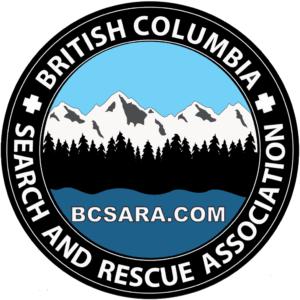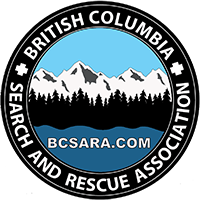 The British Columbia Search and Rescue Association (BCSARA) represents and supports the 80 search and rescue groups, their 2,500 members located throughout the province, and the agencies our members provide the service on behalf of. Recently there have been comments made in the media that the current search and rescue model is not sustainable, along with opinions on what is required to meet the growing demand. The Board of the BCSARA would like to take this opportunity to provide some context on this issue, and information on actions BCSARA has been working on for a number of years to reduce these issues.
The British Columbia Search and Rescue Association (BCSARA) represents and supports the 80 search and rescue groups, their 2,500 members located throughout the province, and the agencies our members provide the service on behalf of. Recently there have been comments made in the media that the current search and rescue model is not sustainable, along with opinions on what is required to meet the growing demand. The Board of the BCSARA would like to take this opportunity to provide some context on this issue, and information on actions BCSARA has been working on for a number of years to reduce these issues.
A large scale evaluation of SAR needs, including funding, was conducted in 1996 and again in 2004. Both evaluations resulted in major improvements in the service. More recently BCSARA conducted a extensive 2 year consultation process titled ‘Leveling the Playing Field’ where all search and rescue groups and agencies were invited to regional workshops to discuss issues and identify solutions. The input from these sessions has resulted in a number of initiatives and a detailed Action Plan has been implemented. One of the biggest challenges identified is the need for adequate funding to match the growing need for training, required equipment, and operating costs as well as improvements which reduce the administrative demands on volunteers and finally to support prevention activities to reduce the number and severity of incidents. BCSARA has used the consultations with its members to develop a proposed Alternative Funding Model for Search and Rescue in British Columbia’, which will be presented to the Provincial Government shortly.
The current Search and Rescue service in British Columbia is efficient and effective, largely due to the commitment of the volunteers. New technologies, growing demands, and the priority of safety of responders means the model must continue to evolve. We believe that with proper funding, reduced administration for SAR groups, and other supports, improvements within our current program model can continue. The scale and scope of search and rescue in British Columbia is much different than in other Provinces, with over 1,300 incidents which is more than the rest of Canada combined. Hence, challenges are larger requiring everyone to work together to find and implement solutions.
The first step in any meaningful dialogue on improving the SAR service in BC is to conduct evidence based research, enter into discussions on the issues with our partners and then prepare a proper business plan for government to consider.
That is what BCSARA has been doing for the past 2 years. We will be moving forward with our completed plan in the very near future.
Enquiries can be directed to Don Bindon at: president@bcsara.com
[gview file=”https://www.bcsara.com/wp-content/uploads/2013/08/BCSARA-Press-Release-on-Sustainability-13-08-21.pdf”]
